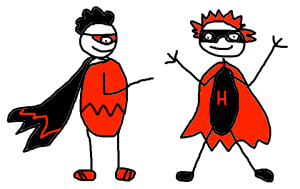On Saturday night whilst I was indulging myself with homemade mulled wine and chocolate fondue something a little less sedate was taking place on the streets of Geneva.
I’m going to go out on a limb and call it vandalism. Those involved would probably wish to contradict me and call it anarchy, as though this justifies destructive behaviour (smashing windows, painting slogans and throwing paint at buildings and statues) as having a higher purpose of ‘fighting the power’.
The thing about anarchy though, is that it is inherently, absolutely pointless. I understand that there is lots to be dissatisfied about in this world where rich white men tend to dominate proceedings and set the rules.
I don’t dispute there is room for improvement but you’ll have to forgive me for baulking at the idea of disestablishing government and prevailing law and order in favour of some sort of lawless society as epitomized in most Westerns. Personally, I don’t want to be subject to the whims of lunatic men on horseback with guns who can act with impunity.
One of the slogans I spotted on the bus was ‘fight the law’ and I just thought why? What is it about ‘the law’ that you don’t like? Is it that people aren’t supposed to rob you at gun point and take your belonging, is it that if someone hurts you or someone you care about they ought to be able to get away with it?
Would it help if I clarified that ‘the law’ isn’t actually the pseudonym of a dragon-wielding monster-villain intent on capturing virgins and eating the people’s livestock and pets? If it were, and my little cats were in danger, then by all means hand me the pitchfork and burning torch and I’ll fight the good fight.
Perhaps foolishly I think laws are supposed to protect people, myself included. I don’t deny that these aren’t always equally enforced and may sometimes benefit some more than others, but that’s a problem with implementation not the entire system.
I was trying to figure out what the point of ‘anarchy’ is and in some forum some chap explained that if anarchy were to succeed then local communities would get together to elect their own leaders and establish their own law and order. This confused me because, well, isn’t that what democracy is? People vote for local leaders, who represent their interests…
Sure, sometimes people vote for others that the rest of us think are dastardly villains, but that’s how democracy works, sometimes people are idiots. Whilst the idea of a particular bouffant buffoon perhaps becoming leader of one of the most powerful nations of the world is terrifying he would have to be elected by a lot of people and although we may think those people monster raving loonies (but not in the good way) they are at liberty to vote for who they want.
Where potentially dangerous leaders are elected to power I am all the more grateful for yet another added level of bureaucracy, in the form of international law and standards, that may have the capacity to keep such individuals in check.
In Switzerland anarchy makes even less sense because the people here already have more power than in most other democratic nations. They really can shape the development of legislation through frequent referenda, often initiated by the people, on most issues. Some of the votes on theses referenda don’t make sense to me, such as voting against increasing raising the minimum wage. The bleeding-heart, lefty liberal that I am, can’t understand why the majority wouldn’t vote for this, but the decision not to raise the wage was the will of most of the people.
I think when people talk about anarchy and setting up on their own they mean setting up with like-minded people and conveniently ignoring everyone else. The idea of those who would like to see a fairer world coming together voluntarily to share resources on an equal footing is lovely. This isn’t really anarchy though, this is what Communism is supposed to look like but as we know attempts have been unable to live up to the ideal and realize this egalitarian utopia.
Because this is the problem, not everyone wants to live in an egalitarian utopia. Even the best of us don’t spend our lives selflessly dedicated to the wellbeing of others, everyone puts their own needs first sometimes, some of us do this all the time. Most of us are quite content just trying to live in this world without harming those around us and some of us don’t really care about who they harm. This is what it means to live in freedom in the world, it means we have the freedom to try and be the best version of ourselves but we also have the freedom to be bastards to those around us as well as future generations we may never know.
The idea of anarchy as absolute freedom for everyone would be great if everyone happened to be a decent person but not everyone is a decent person and how can you have no establishment, no authority, absolute freedom but exclude the indecent people from this? Who would draw the line? And if nobody draws the line then that means that many will live without freedom because they are afraid of the liberties of others.
The thing about anarchy that bothers me is that it’s an easy option for lazy people who want to express their indignation without really doing anything to change things. It is easy to throw criticism, stones or paint from afar but actually making suggestions for improvement is another thing. Destruction is far easier than creation.
Some of the alleged concerns (I say alleged because I don’t doubt some saw the march just as an excuse to just destroy shit) of those that marched on Geneva are reasonable, lack of subsidies for culture that is accessible to everyone is worth fighting against but there are better ways to do this. If the issue is budget cuts then causing thousands of francs worth of damage will just fuel government claims they don’t have the money.
If you don’t like the system, look to change it, suggest alternatives and seek about how to implement them without harming others. Resorting to petty acts of violence will do nothing but alienate what may genuinely be a worthy cause.
In other, far better words than mine: ‘be the change that you wish to see in the world.’





















